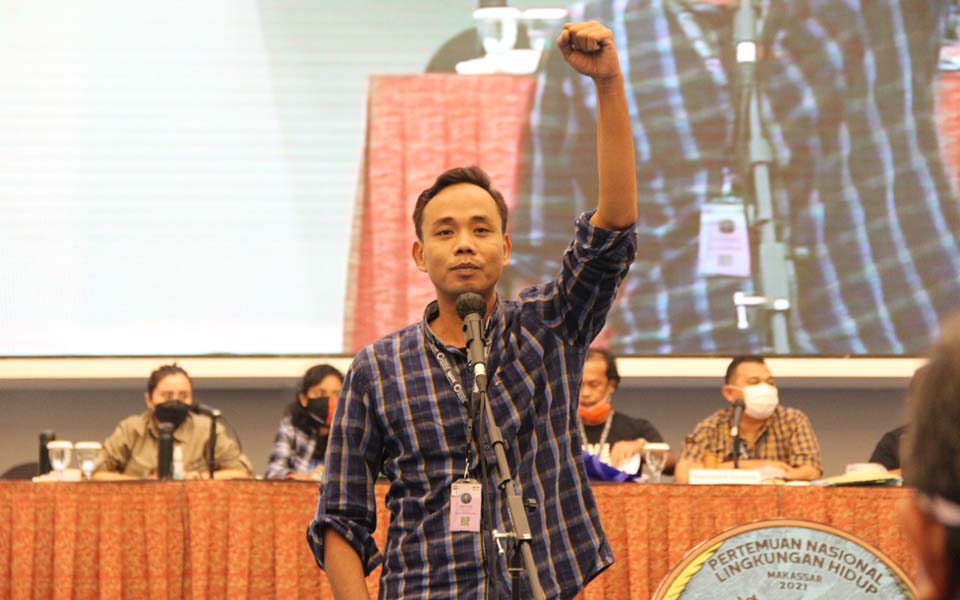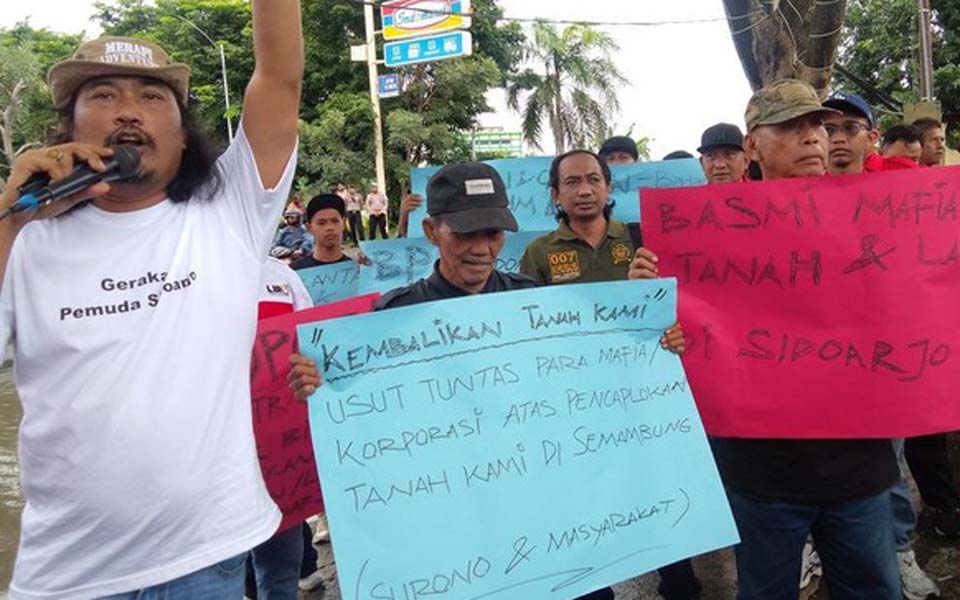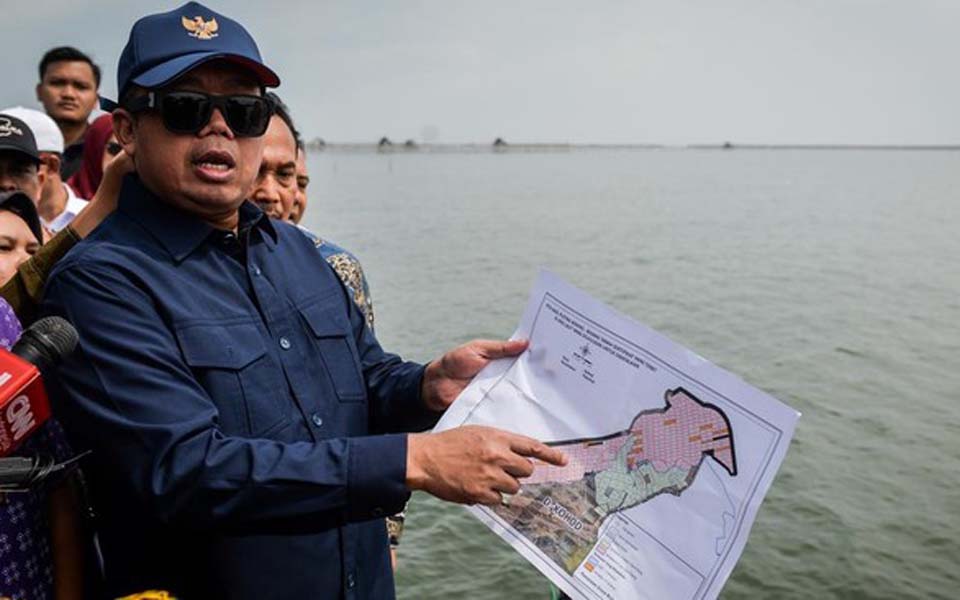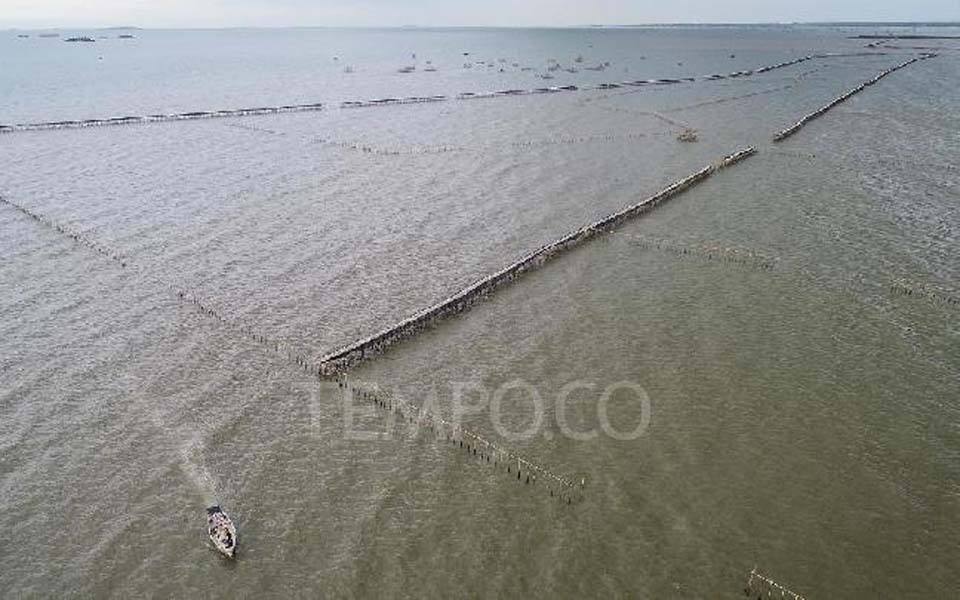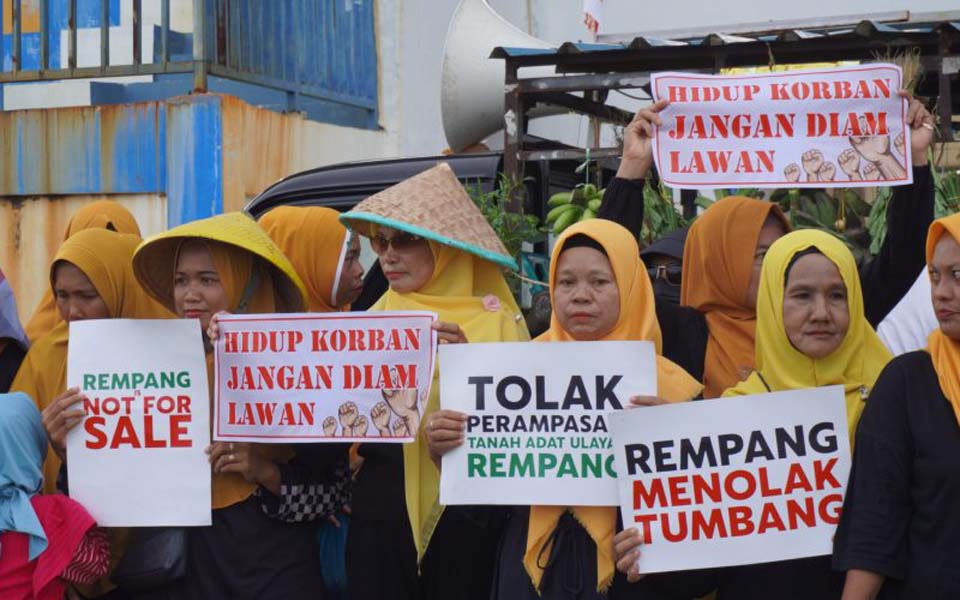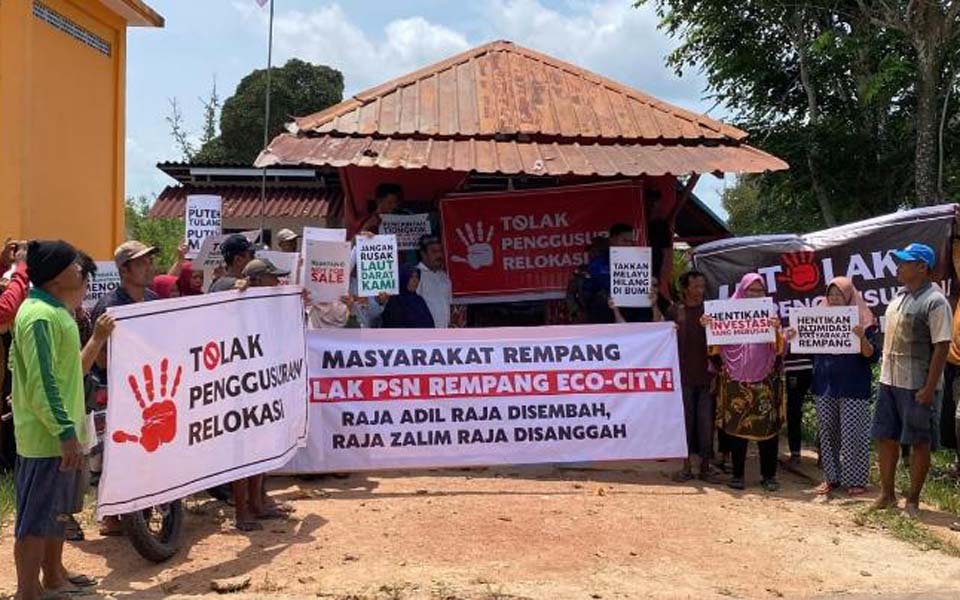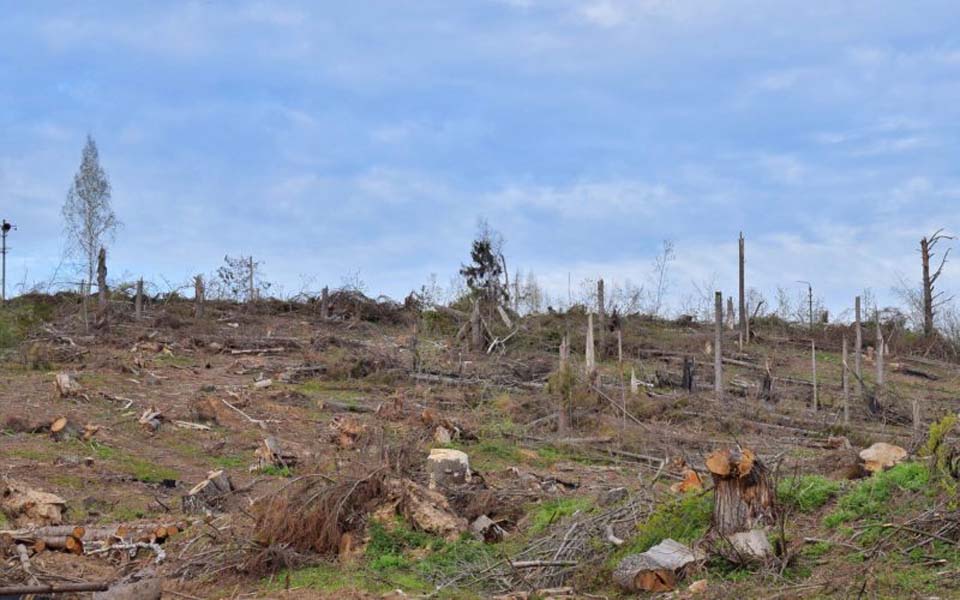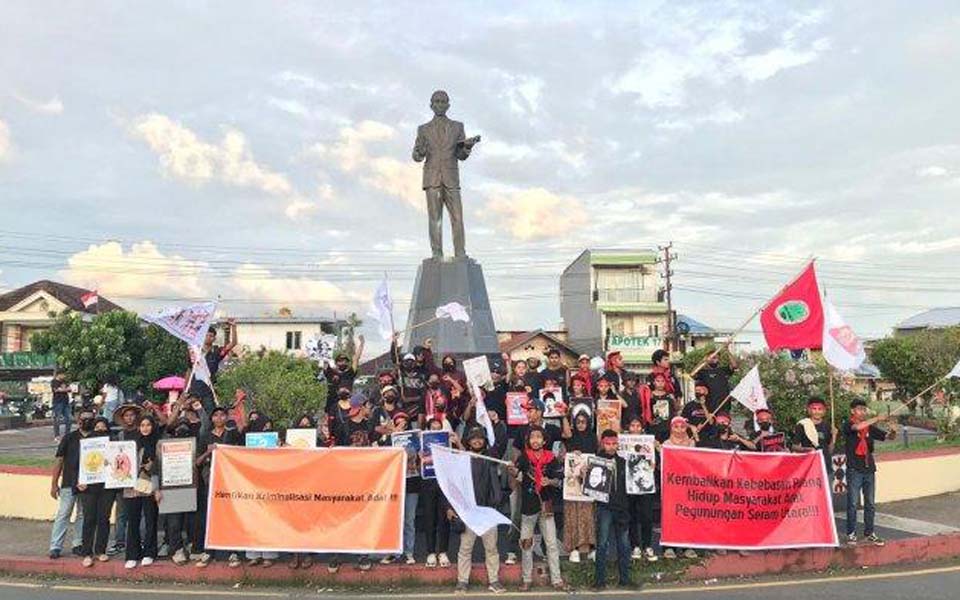Jakarta – The Indonesian Forum for the Environment (Walhi) says that 222 illegal palm oil corporations have been granted amnesty or in other words they can continue operating despite not meeting the legal requirements.
Walhi Forestry and Plantation Campaign Head Uli Arta Siagian said that the amnesty for their crimes was given to them through the extension mechanisms regulated under the Jobs Law (Ciptaker).
"As many as 222 palm oil companies covering a total area of 765 thousand hectares will receive 'amnesty for their crimes from the state through the extension mechanism regulated under Articles 110A and 110B of the Jobs Law", said Siagian in a written release on Tuesday January 11.
Under Articles 11OA and 110B of the Jobs Law it sets out the extension mechanisms and remedial ultimatum principals, namely a time extension for incurring administrative sanctions for companies which do not fulfill the legal stipulations or are operating illegally.
"Anyone who conducts business activities which are already established and has a business permit in a forest area before the enactment of this law who has not yet fulfilled the requirements in accordance with legislation on forestry affairs, is obliged to complete these requirements within 3 (three) years at the latest after this law comes into force", reads Article 110A Paragraph 1.
In Paragraph 2 it explains that if three years after the law comes in effect the requirements referred to in Paragraph 1 are not met then the perpetrators shall incur an administrative sanction in the form of the payment of an administrative fine and or the revocation of their business license.
The sanctions themselves are then stipulated under Government Regulation Number 24/2021 on Procedures for Imposition of Administrative Sanctions and Procedures for the Acceptance of Monthly Taxes Originating From Administrative Fines in the Forestry Industry. This regulation is also a derivative of the Jobs Law.
"So they only have to pay an administrative fine then they can manage the forests legally by means of the forests being released and their status no longer being forests", said Siagian.
Spread across 14 provinces
Siagian said that the 222 illegal companies which will be able to continue operations are spread across 14 provinces. Based on Walhi's records, there are 37 companies in Riau covering a land area of 112,858 hectares.
Then in North Sumatra there are 10 companies with 55,165 hectares of land, in South Sumatra there are six companies covering 11,199 hectares and in Bengkulu one company covering 1,661 hectares.
"In the Riau islands there are two companies (3,683 hectares), Bnagka Belitung one company (60 hectares)", she said.
Shifting to the Kalimantan Islands there are eight companies with 39,80[0] hectares, Central Kalimantan with 109 companies covering 449.548 hectares, East Kalimantan with 11 companies covering 7,377 hectares and South Kalimantan with 18 companies covering 29,893 hectares.
Then in Central Maluku there are three companies covering 4,142 hectares of land and in Papua there are two companies with 13.141 hectares of land.
Siagian is of the view that the government should revoke these illegal business licenses not instead give them amnesty because most of these companies have also caused environmental damage and created conflicts with local people.
"Several companies which have submitted [requests under the] extension mechanisms are in fact in conflict with local people on the ground. One other thing, accommodating extensions for these corporations' shows that the state prefers to obey these corporations, not the constitution", she said. (yla/DAL)
[Translated by James Balowski. The original title of the article was "Walhi: 222 Korporasi Sawit Ilegal Dapat Pengampunan Berkat UU Ciptaker".]







